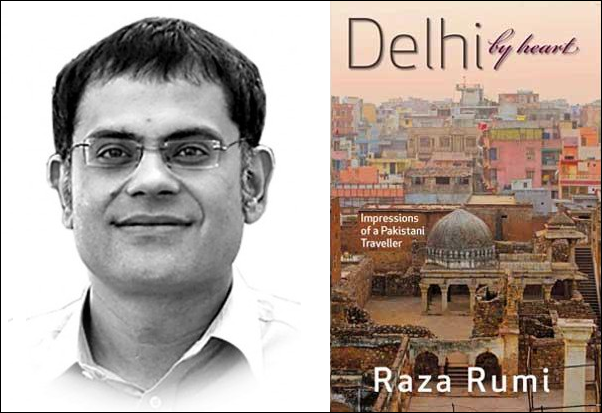[ by Charles Cameron — an assassination attempt, a book review — and a counterpoint of musicians ]
.
**
I have mentioned Raza Rumi only once before on Zenpundit, in Darfur question… and wider Sufi ripples two years ago. This week, however, there was an attempt on his life, and on the 29th, Rumi posted about it on his Jahane Rumi blog:
Finally, I countenanced what I had been dreading for quite some time. Journalists and media houses being under threat is a well-known story in conflict-ridden Pakistan. I had also heard about my name being on a few hit-lists but I thought these were tactics to scare dissenters and independent voices. But this was obviously an incorrect assessment of the situation.
On Friday night, when I had planned to visit Data Darbar after my television show, my car was attacked by “unknown” (a euphemism for lethal terror outfits) assailants. The minute I heard the first bullet, the Darwinian instinct made me duck under and I chose to lie on the back of the car.
This near death experience with bullets flying over me and shattered window glass falling over me reminded me of the way my own country was turning into a laboratory of violence. Worse, that when I saved myself, it was not without a price. A young man, who had been working as my driver for sometime, was almost dead. I stood on a busy road asking for help and not a single car stopped…
As I tweeted when I heard about the attempt, I was distressed to hear of the attack, and wish him well — and Pakistan, too.
**
I’ve been a quiet admirer and occasional reader of Rumi’s blog for quite a while now, and am looking forward to reading his book, Delhi By Heart.
The first and final paragraphs from Venki Vembu‘s review of the book confirm me in my wish to do so. They also — and here’s what this post is really all about — show us both the deeply etched lines of division –
In his novel The Shadow Lines, Amitav Ghosh writes of the imagined cartographic lines that divide people in the Indian subcontinent and cleave their souls. Many of these “shadow lines” are etched in bitter, hand-me-down memories and imaginations, and for that reason are rather more indelible than lines on a map, which can perhaps be redrawn over time.
— and the possibility that such lines and boundaries can be overcome, erased, transcended —
Rumi offers this fascinating narrative as a “faint voice that wants to transcend boundaries and borders and reject the ills of jingoism spun by nation-state narratives.” In form and spirit, this unusual travelogue is like a jugal bandhi: songs of bhakti tradition fuse seamlessly with qawwali strains from the Nizamuddin dargah. It is an enchanting illustration of how the divisive shadow lines of history can be erased when hearts and minds are opened to new experiences.
**
Finally, for your listening pleasure: an intricate jugalbandhi or musical dialogue between Zakir Hussain on tabla and Hariprasad Chaurasia on bansuri flute…



